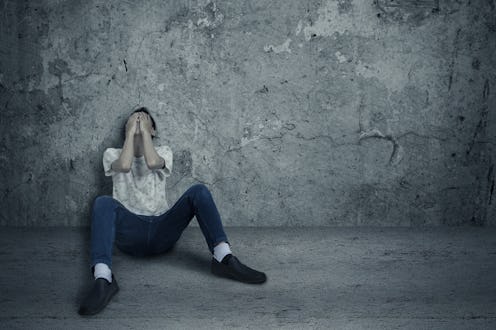News
Men Can Be Victims of Rape, Too

The discussion of rape culture in major media is largely driven by feminists, and most often focuses on the reality that one in six American women will be the victim of an attempted or completed rape. Sexual assault is a very real concern for women of all ages, but a new study shows that men are also impacted profoundly by rape and other forms of unwanted sexual contact.
According to a study published in the American Psychological Association’s Psychology of Men and Masculinity journal, 43 percent of high school and college-aged men reported being the targets of “unwanted” sex, and 95 percent of the time, the aggressor was a woman. Of the 284 men surveyed, 18 percent said that they were physically coerced into sex, and 31 percent were verbally coerced. In 40 percent of these cases, coercion resulted in sex. The rest of the time, “fondling or kissing” was the result.
These statistics are surprising, especially in the face of the perception that only women are raped, and that it only occurs by men. According to the Rape, Abuse, and Incest National Network, nine of every 10 rape victims is a woman...which means one in 10 is a man or someone who does not identify with either gender.
This study could shine a light on the fact that men are historically much less likely to report sexual assault than women. The majority of sexual assaults attempted on people of all genders are not reported, and the issue is especially sensitive when you figure in the social costs of reporting an assault for a man.
According to the typical stereotypes, men are supposed to be strong and virile and women weak and non-aggressive, so it’s no wonder that so many men may be reluctant to report a sexual assault. Many people also believe that it’s difficult for men to be raped, because if they weren’t really into the sex, they wouldn’t have been able to sustain an erection.
We, of course, know that to be patently false. People of all genders may experience sexual arousal during an assault. “Sometimes when women are experiencing sexual violence, their bodies respond in ways that don’t correspond to how they feel,” said Dr. Bryana French, a co-author of the study and professor of counseling psychology and Black studies at the University of Missouri in an interview with Time. “They can not want the experience to happen, even if their bodies said otherwise.”
These findings are extremely important as the issue of rape culture becomes more pervasive in mainstream culture. Sexual assault has for years been a “woman’s issue,” even though men are frequently the targets of these assaults. In order to fight back against a culture that excuses rape and blames victims, men must get involved. As activist Jaclyn Freedman wrote at The American Prospect, “If we want to end the pandemic of rape, it’s going to require an entire global movement of men willing to do the hard work of interrogating the ideas they were raised with.” It’s also going to take studies like this one that prove to men that sexual assault isn’t just an issue that impacts women.